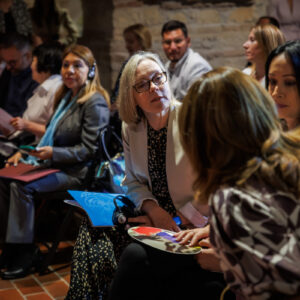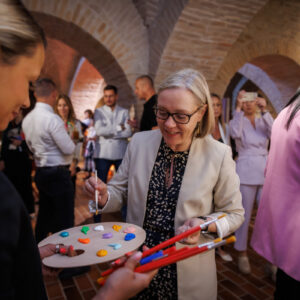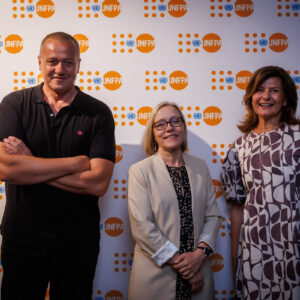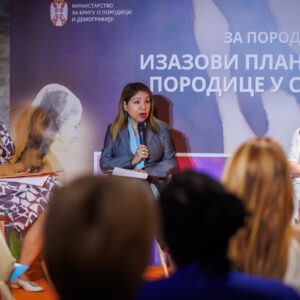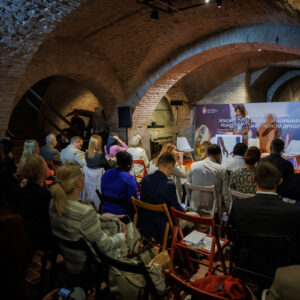Challenges of Planning and Building Families in a Modern World – World Population Day marked in Serbia
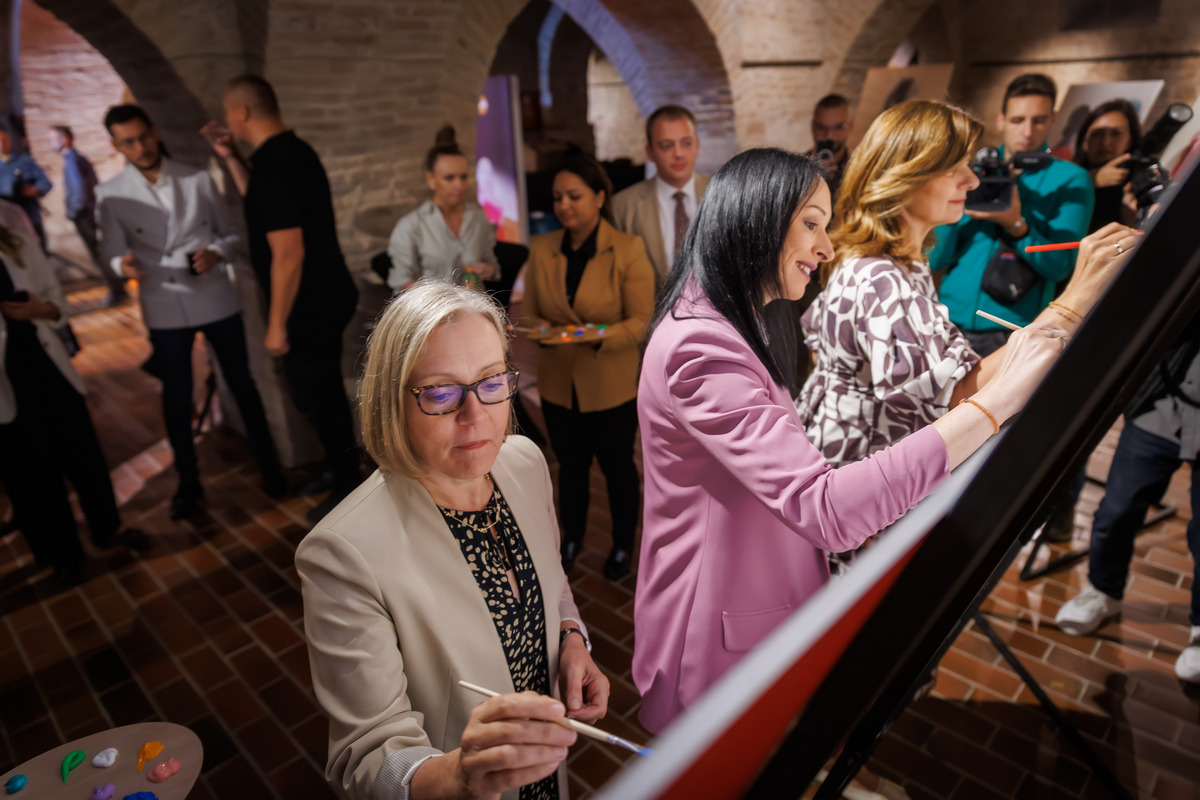
The United Nations Population Fund (UNFPA) in Serbia, in cooperation with the Ministry for Family Welfare and Demography and with the support of the UN Resident Coordinator in Serbia, marked the World Population Day today at the Princess Ljubica’s Residence in Belgrade under the slogan “Family You Aspire To: Challenges of Planning and Building Families in a Modern World”.
This year’s observance of World Population Day focused on the key findings of the 2025 State of World Population Report. Through a discussion on the challenges of building a family in a changing world, participants emphasised the importance of creating a more equitable, sustainable and caring world that supports individuals to have the families they aspire to.
Drawing on academic research and new data from a UNFPA/YouGov survey spanning 14 countries, together home to over a third of the global population, the report finds that millions of people are unable to have the number of children they want. Economic insecurity, unstable employment, high childcare costs, unequal distribution of domestic and care responsibilities, and widespread uncertainty fueled by global crises and climate change are among the key barriers. The report calls for a shift in perspective – from asking “how many children does a society need?”, to “do people truly have the conditions and freedom to decide if, when and how many children to have?”
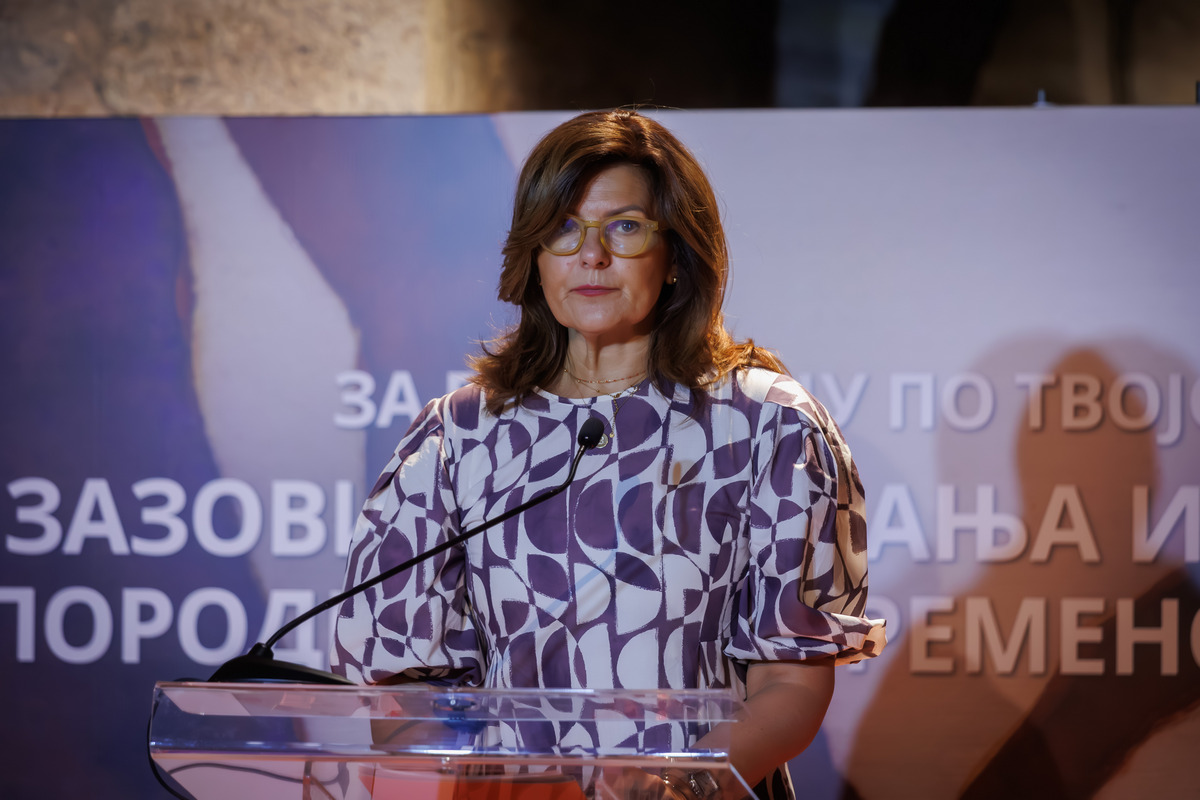
“The State of the World Population Report shows that many people face a wide range of economic, social and cultural challenges when making decisions towards families they aspire to. One in five people globally expect not to have the number of children they desire. Through the Demographic Resilience Programme, UNFPA in Serbia works with partners to improve access to health and social services, strengthen support for families and parenting, advance gender equality, and shift social norms. Serbia has shown leadership in the region in many ways – from adopting key strategic frameworks, such as the Strategy on Active and Healthy Ageing, to being among the few countries with a dedicated ministry for family welfare and demography. This reflects its strong commitment to a long-term and inclusive approach to demographic change,” said Borka Jeremić, Head of the UNFPA Office in Serbia.
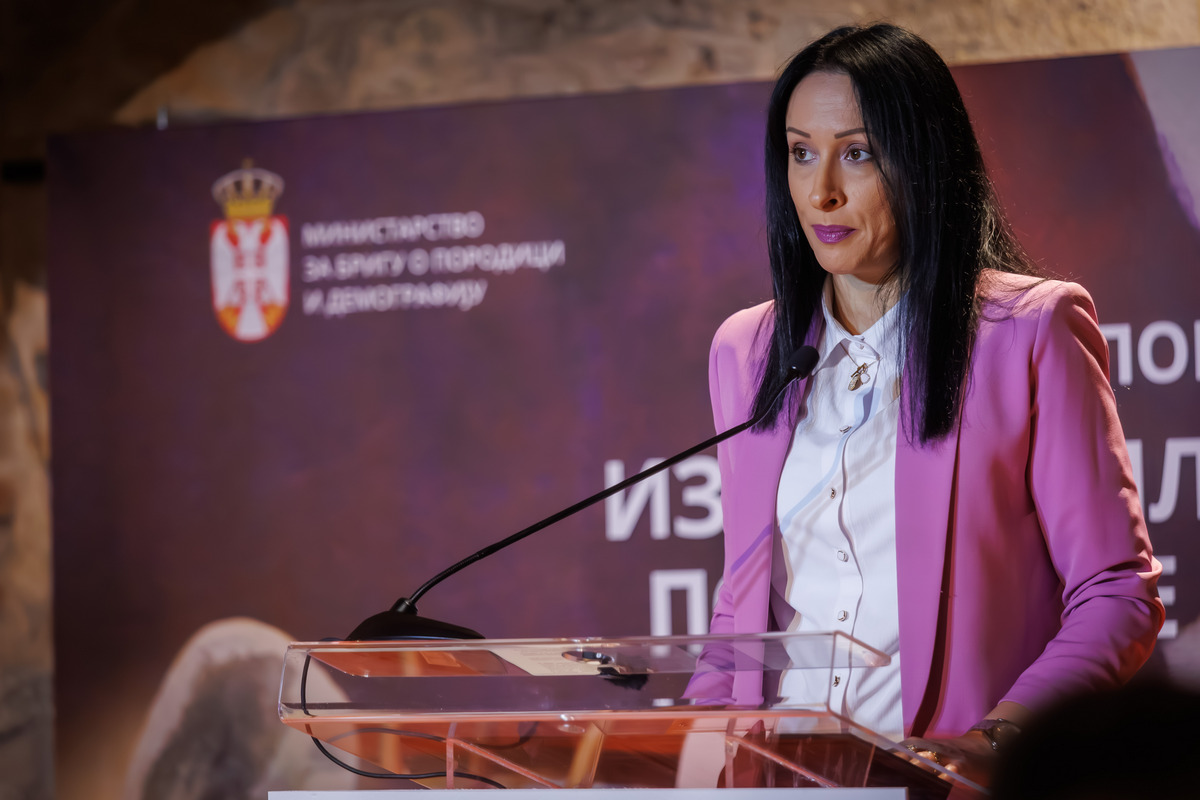
Jelena Žarić Kovačević, Minister for Family Welfare and Demography, emphasised the commitment of the Government of the Republic of Serbia to improving the quality of life and access to services, strengthening support for families and parents, and creating an inclusive environment for all generations. She noted that the Ministry for Family Welfare and Demography has introduced a range of incentive measures and that Serbia currently provides the highest parental allowance in this part of Europe. She also highlighted the recent introduction of a new measure allowing housing subsidies for mothers to be combined with favourable loans for young people. The Minister announced the development of a new National Strategy or Programme for Family and Demography.
“The latest State of World Population Report reminds us that the right and freedom to decide on parenthood and family planning are fundamental pillars of modern society. It is the responsibility of all of us – policymakers, experts, and communities – to create conditions in which every person can make informed and voluntary decisions that align with their values. At the heart of public support measures, we must place quality and core values: the right to choose, freedom of decision-making, equality, peace, a healthy environment, improved living conditions, a more supportive community, and more humane care. One of the important steps forward is that, with the support of the United Nations Population Fund (UNFPA), we are beginning the process of developing a national strategic document in this domain,” stated Minister Žarić Kovačević.
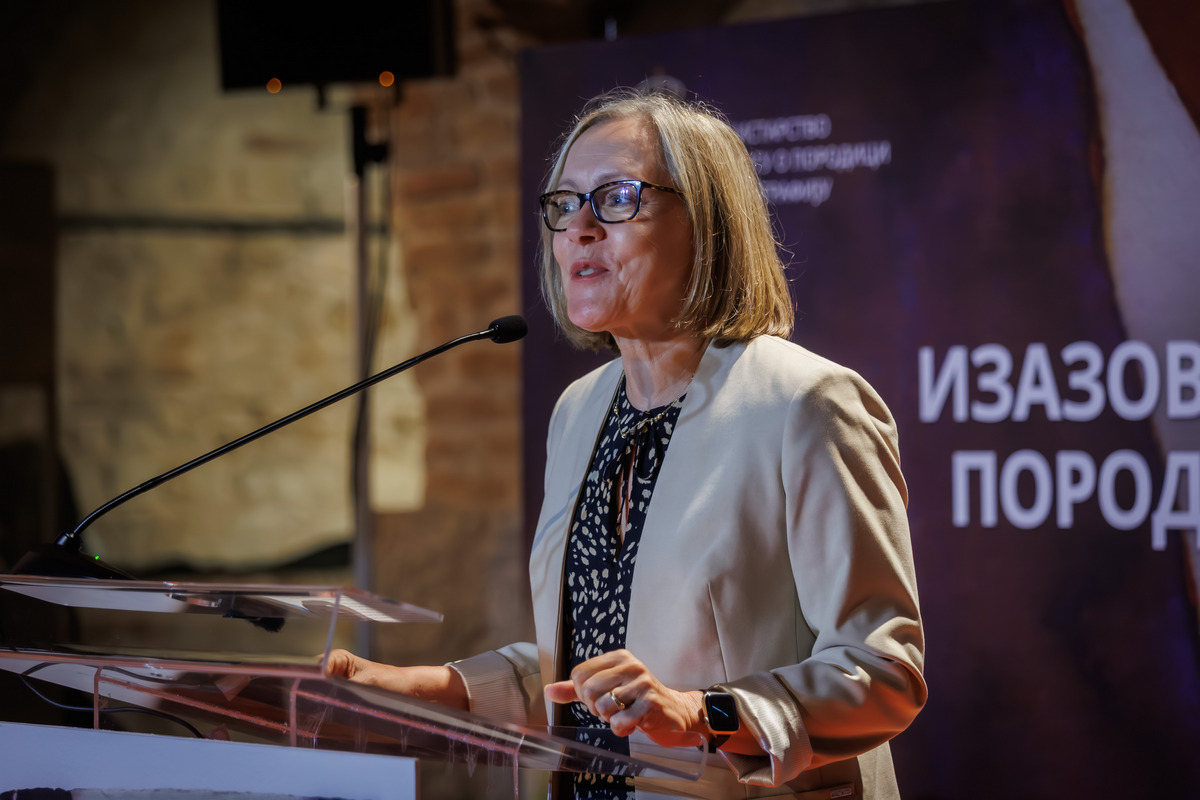
Matilde Mordt, UN Resident Coordinator in Serbia, highlighted the importance of joint efforts to improve quality of life, reduce inequalities and create enabling environments for future parents and families, in alignment with national development priorities and the Sustainable Development Goals.
“Demographic trends are not about numbers—they are about people’s ability to make informed, supported choices about their lives. In Serbia, the United Nations works with institutions to ensure that policies and systems respond to these realities, so that everyone can plan their future with confidence and dignity”, said Ms. Mordt.
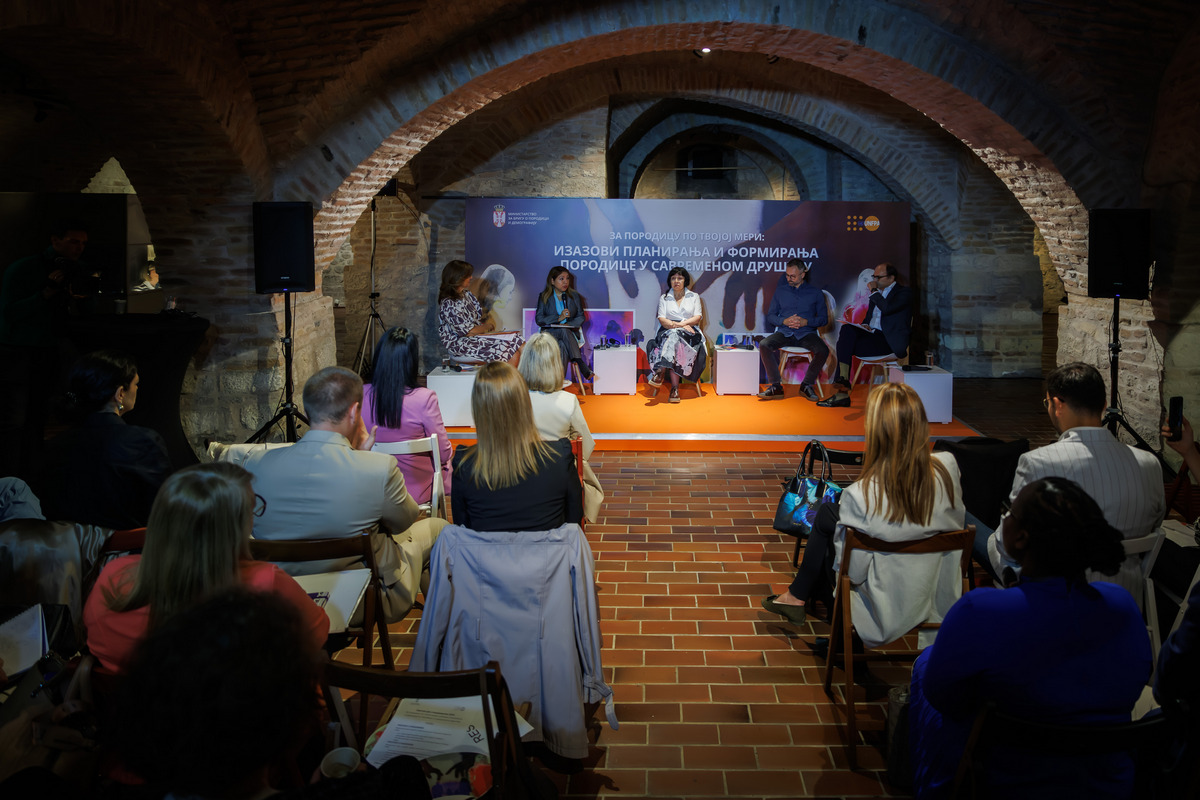
During the interactive panel discussion, participants explored ongoing efforts as well as areas for improvement across sectors to address the challenges outlined in the Global State of World Population Report, with a focus on policies that empower individuals to make informed and voluntary decisions about family formation. Panelists were Ms. Flor de Lis Vásquez Muñoz, Deputy Head of Mission, Embassy of Mexico in Serbia, who shared Mexico’s experiences in developing family support policies and promoting gender equality, Prof. Dr. Mirjana Rašević, member of the Serbian Academy of Sciences and Arts and President of the Committee for Population Studies, who presented the latest research insights on trends influencing decisions about parenthood and family formation, Mr. Nenad Đurđević, Advisor to the President of the Serbian Chamber of Commerce, who discussed the private sector’s role in supporting work-life balance, and Dr Vladimir Nikitović, Head of the Centre for Demographic Research at the National Institute of Social Sciences and President of the Association of Demographers of Serbia, who addressed how men perceive parenting, partnerships, and decisions on building families, as well as behavioral patterns, obstacles, and opportunities for greater male involvement in family life. The importance of policies that promote gender equality, flexible working arrangements, increased involvement of men in caregiving and unpaid work, and shared responsibilities within families was emphasised throughout the event.
The observance concluded with a collaborative art activity, where participants painted a canvas symbolising a collective vision of a world in which every family is shaped by individual choice.

